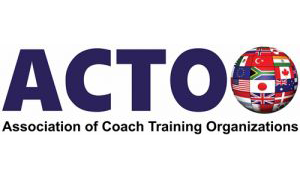I greatly appreciate this style of coaching. My coach does not prescribe solutions but rather listens carefully and asks questions that in turn serve to bring about further reflection. Through this process, I’m able to more fully express my own goals, priorities, values and sense of purpose.
Deputy Director, Office of Sustainable Development, Bureau of Africa, U.S. Agency for International Development
Coaching accelerates and supports development. Coaching can help you in meeting current challenges in new and generative ways. And, coaching can help you prepare for future conditions that you can’t yet anticipate or imagine. A strong coach:
- serves you as a compassionate, rigorous, and committed partner
- provides rigor and on-going accountability to your development
- grounds the coaching work in proven, pragmatic methods
- offers precise and powerful feedback and reflections
- asks artful questions that invite out-of-the-box thinking
- brings new perspectives
- designs, jointly with you, application and new practices

FAQ
Yes, getting coached is an investment of time and resources. And, the payoff can be spectacular. This FAQ can help you explore if coaching is for you.
Why has coaching become so popular?
Coaching is a proven approach to long term change, especially when compared to traditional training. 25-40% of major corporations now use coaching means to develop high-potential leaders; a number of studies document an ROI of 500% on coaching. Coaching is personalized, real-world, pragmatic, and sustainable, often producing significant non-tangible benefits as well. Coaching develops leadership capacity using immediate challenges as the classroom.
What are the differences between coaching, counseling and consulting?
Honestly, whatever others might say, the lines blur. Generally, coaching is future-oriented, facilitative, and focused on the development of the person. Traditional counseling focuses on addressing the emotional and psychological roots of behavioral issues. Traditional consulting is “expert-driven,” focused on business problems. Depending on the needs of a particular situation, each form of support has its place and value.
How does developmental coaching differ from performance coaching?
Performance coaching helps individuals make more contributions towards specific organizational outcomes and metrics. Developmental coaching goes well beyond this, seeking to develop the whole person. Performance is still addressed, but coaching focuses on the larger context of building lifelong competencies.
How do I know if coaching is right for me?
Successful coaching relies on your genuine desire to change, and a coach’s balance of challenge and support. Look at these statements; if they describe you well, coaching will be helpful. If you’re not sure, talk to a couple of prospective coaches as part of your decision.
- I have a genuine desire to stretch and change.
- I am willing to experiment with new ways to do things.
- I am willing to ask for support when I need it.
- I am disciplined about following through on commitments.
- I am highly motivated, right now, by a big challenge or a new opportunity.
- I recognize I have blind spots, and know I need candid feedback from others.
- I am willing to invest in this as a priority for at least six months.
- It’s the right time for me to take a leap.
How is coaching individualized for me?
Good coaching will be highly tailored to you, rather than a cookie-cutter series of exercises. A skilled coach will partner with you to define specific and observable outcomes, will be accountable to these outcomes, and will jointly design the learning process with you. The program will evolve as you do, and will be responsive to your circumstances as they change. Ask a prospective coach specifically how he or she will do this.
How do I find a good coach?
These steps are a good approach. You’re already doing the first!
- Educate yourself about coaching.
- Assess if coaching is right for you. (See the previous question in this FAQ.)
- Outline your goals, and what you want to get out of the experience. Write down what you would like to be different, and the new perspectives and capacities that are important to you. Be specific and be bold.
- Identify at least three potential coaches from talking to friends and colleagues, your organization’s coaching pool, the International Coaching Federation (ICF) Coach Referral Service, and our list of certified Presence-Based Coaches.
- Interview several coaches. Chemistry is crucial, as is coaching philosophy and approach. Tell each prospective coach about your initial goals, and ask tough questions about how the coach would work with you. A coach will be willing to have an exploratory conversation at no charge, and should include an experience of his or her coaching on a real issue if you request it. The interpersonal connection and chemistry between you and a prospective coach should feel “right,” and by the end you should have learned something new about yourself.
- After you have interviewed at least three coaches, make your decision. Be sure to clarify how the assessment process will work, who will be involved, and how outcomes will be defined and assessed.
What does the coaching process itself look like?
Different coaches will approach things differently. Generally, Presence-Based® Coaches follow this approach:
- Exploratory conversation to see if it’s a fit.
- Initial interview conversation and assessment; this can be very simple, or can also include conversations with other stakeholders, 360 assessments and other instruments, etc.
- Joint development and agreement on specific and observable coaching outcomes.
- Scheduling of regular coaching sessions, and joint design of fieldwork that integrates learning into the rest of life.
- Robust, on-going, and regular sessions in person, or by phone or videoconference.
- An agreed-upon process to organize session notes, resource files, action items and practices.
- Periodic and rigorous assessments of progress against program outcomes.
- A plan for your on-going growth and development after the conclusion of coaching.








